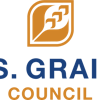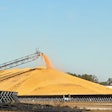From the Food Safety Modernization Act (FSMA) to the Reportable Food Registry to calls for increased penalties for some food safety violators, food safety is clearly on the national radar. What many are unaware of is the extent to which these new food safety regulations impact the feed and grain industries.
FDA regulates animal and pet food products and ingredients under the same authority and regulations as it does human food products — the Federal Food Drug & Cosmetic Act. The regulations are essentially the same for all food products, whether for human or animal consumption — food must be safe to eat, must be produced in sanitary conditions, must not contain any harmful substances, and must be labeled properly and truthfully.
What is the Food Safety Modernization Act?
FSMA is the first significant update and expansion of FDA’s food safety regulatory powers in approximately 70 years. It is a comprehensive bill that can roughly be divided into three areas of focus: prevention, detection and response, and imported foods. With very few exceptions, these provisions apply to the animal feed industry.
Imported Foods
FSMA puts a heavy emphasis on improving the safety of in imported foods and ingredients. Much of the media focus has been on the human food supply, but imported animal feed and pet food products have also been a problem.
FSMA takes major steps towards increasing regulation of imported food products. The regulations apply the same whether the product is destined for human or animal consumption. One of the new programs is the foreign supplier verification program. This program will require importers to conduct risk-based verifications of foreign suppliers to ensure the suppliers are complying with food safety requirements. Importers would also need to verify that foreign suppliers are not producing adulterated or misbranded food. Importers are responsible for verifying foreign supplier compliance and keeping records of those verification efforts for at least two years.
For purposes of this program, Congress has defined an importer as the owner of food item or ingredient at the time it enters the United States, or if none, the U.S. agent or representative of the foreign owner. At this time, we have only the skeletal framework of this program and FDA is in the process of developing the regulations that will provide further information. FSMA requires FDA release regulations regarding the foreign supplier verification program by January 2012.
In addition to the verification program, the FSMA also includes a new voluntary qualified importer program. This program will allow importers to seek expedited review and importation of certain foods from qualified foreign facilities — in essence, a fast track. FDA will look at a number of factors, including the food type's risk, the importer's compliance history, the exporting country's food safety system, the importer's record-keeping practices and the risk of adulteration, to determine if importers are qualified. Details of the program are sparse at this point.
FDA is also empowered to require a certificate of compliance before it allows the import of certain high-risk foods. These would be foods identified due to known risks associated with that food, risks relating to country of origin and/or a finding that the country of origin cannot adequately ensure that U.S. food safety standards are being met. For example, in 2007, FDA determined that melamine was contaminating wheat gluten produced in China used in hog feed here in the U.S. If a similar type of contamination concern arose today, FDA could require that all wheat gluten imported from China provide a certificate of compliance before it was allowed to enter the United States.
While we will not see regulations released by FDA for about a year, companies should now start to gather information and records, such as identifying their foreign suppliers of feed ingredients and begin to work with those suppliers in anticipation of the upcoming regulations.
Preventative Measures
While most of FSMA applies equally to animal and human food companies, one exception to this is found in the part of FSMA addressing preventative measures. One key component of is the requirement that facilities create a written hazard analysis and preventive controls plan. Although similar to a HACCP plan, which many companies already have in place, the FSMA requirement is broader and more comprehensive. Voluntary programs, such as the Safe Feed/Safe Food Certification Program developed by the AFIA, will give companies a head start on complying with the new requirements. However, because we do not yet have regulations from FDA providing details of what exactly companies must do to comply with this provision, it is unclear whether these voluntary plans will satisfy the mandatory requirements.
FDA is required to release regulations related to the Hazard Analysis & Risk-based Preventive Controls plan provision by July 2012. In the mean time, companies should review any similar plans in place, and be prepared to re-analyze those plans to determine compliance once regulations are released.
Some animal feed companies may ultimately be exempted from this provision. FSMA allows FDA to modify the preventive controls requirements for facilities that are “solely engaged in the production of food for animals other than man” or to even fully exempt those facilities from the requirements. However, for this to occur, FDA needs to issue a regulation detailing the modification or exemption. This has not yet occurred, meaning that for the time being, animal feed companies should be prepared to comply with the hazard analysis provision. Further, based on FDA comments in a recent public hearing on FSMA implementation, it is unlikely FDA will fully exempt most, if any, feed companies.
What if you classify yourself as “just a farmer”, who processes and sells a little feed as well? FDA regulations require farms must register with FDA if (1) the farm packs or holds food or animal feed not grown, raised or consumed on that farm or another under the same ownership or (2) the farm manufactures or processed food (including animal feed) that is not consumed on that farm or another under the same ownership. FDA is now required to issue regulations that specify what activities fall under each of these categories. In addition, FDA must issue regulations that will exempt certain on-farm activities from the preventive control plan requirement. There may also be exemptions or modifications for small or very small businesses.
Detection and Response
FSMA also gives FDA the authority to issue a mandatory recall of a food product. Up to this point, FDA could only request a company issue a voluntary recall, but could not order one. What is significant about this provision is that it establishes a formal process FDA must follow and gives companies the opportunity to challenge a recall, although only after the fact. A related provision lowers the standard that must be met before FDA may administratively detain food articles.
FSMA also expands FDA’s authority to review company records, and provides authority for FDA to suspend a company’s registration in Class I recall-type situations. The increased authority to review records (in addition to the various new recordkeeping requirements within FSMA) means companies need to ensure they have a well-organized recordkeeping system.
The provision most directly affecting the largest number of feed and grain companies is the requirement that FDA increase inspections of all regulated facilities. High-risk facilities and/or foods will be identified by FDA, based on factors such as compliance history, inspection history, or types of food more commonly tied to outbreaks. If designated high-risk, a facility can expect to be inspected once by 2016 and then at least once every three years. Other facilities must be inspected by FDA once by 2018 and then at least once every five years thereafter. Inspections of foreign facilities are also set to dramatically increase over the next five years.
Regulated facilities should be prepared for their next inspection including having a plan in place for employees to follow should FDA arrive for an inspection, identifying (in advance) those responsible to work with FDA during an inspection, knowing where the relevant documents are kept, and having a plan in place as to how to respond to any issues FDA identifies.
Another important component of FSMA is a newly established series of “whistleblower" provisions. These provisions prohibit companies from terminating or discriminating against employees who engage in certain protected activities, such as reporting violations of food safety regulations. This type of whistleblowing provision is new to this industry. In order to ensure compliance, companies should review their current policies and practices, including discipline and discharge policies, as well as provide training to managers and employees, as needed.
Reportable Food Registry
The detection and response provisions of the FSMA also included some updates to the Reportable Food Registry (RFR). The RFR was launched by FDA in 2009 as a type of early warning system related to foodborne illnesses. The RFR applies equally to the human and animal food industries, yet there appears to be some confusion regarding the application of the RFR on the animal feed side. Generally, if you are required to register with the FDA, then you are subject to the RFR requirements.
Anytime a company becomes aware of the reasonable probability that the use of, or exposure to, an article of food will cause serious adverse health consequences or death to humans or animals, it is required to make a report to the RFR. For example, swine feed with elevated levels of selenium or sheep feed with elevated levels of copper would likely be considered reportable foods. If a company (the party responsible for filing the report) determines that it has a reportable food in its possession, it is required to file a report within 24 hours.
The only time a report need not be made is if the company can satisfy three criteria: (1) The adulteration originated with the responsible party; and (2) the responsible party detected the adulteration prior to the food article changing custody; and (3) the responsible party corrected the adulteration or destroyed the food article. If all three criteria are satisfied, then a report does not need to be filed.
Two key questions come up in relation to the RFR — how do I determine if I have a reportable food and when do I need to report it? The second question is somewhat easier to answer — once a reportable food has been identified, the report must be filed by the responsible party within 24 hours. If it turns out to be a false alarm, or if you don’t have all the necessary information, reports can be modified at a later date to reflect more recent developments.
In order to determine when that 24-hour period begins to run though, it is important to know how to identify a reportable food. The general rule is better safe than sorry. For example, a confirmatory test related to a contaminant will automatically trigger the 24-hour reporting requirement. A presumptive test for a contaminant may trigger the reporting requirement, depending on the reliability of the test. In addition, the mere presence of a contaminant may not trigger the need to file a report, as it may be at such insignificant levels that it would not cause serious adverse health consequences or death. Each potential situation will require a thorough, timely review of the testing procedures, reliability, and other related factors before a reporting determination is made.
Traceability can also be a concern for the grain industry when it comes to the RFR. After filing a report, you may be required to notify the parties above and below you in the stream of commerce. Recordkeeping is a key component of this requirement, and companies need to ensure that records are adequate to, at a minimum, help narrow the focus of this notification.
While FSMA does not require traceability, it does require that FDA test pilot programs in this area. Good recordkeeping practices and at least minimal traceability procedures at your facilities will help ensure you are prepared to file a report with the RFR or in the case of a recall.
What Next?
FDA has a lot of work to do over the next 12 to 18 months. While the rulemaking process has begun, many questions remain as to if FDA will be able to complete all the necessary work in the timeframes provided and how FDA will be able to implement many of the FSMA provisions without increased funds. FDA is conducting workshops on the FSMA provisions, and is actively seeking industry participation. Whether by attending a workshop or by submitting comments on proposed rules, it is important that the feed and grain industry participate in the process to ensure its voice is heard.
More information on the RFR and the complete listing of reporting requirements, as well as further information on the FSMA, can be found on FDA’s webpage. If you have any question about FSMA, the RFR or other food safety concerns, contact your legal counsel for advice on how you should proceed.


















